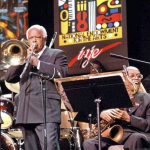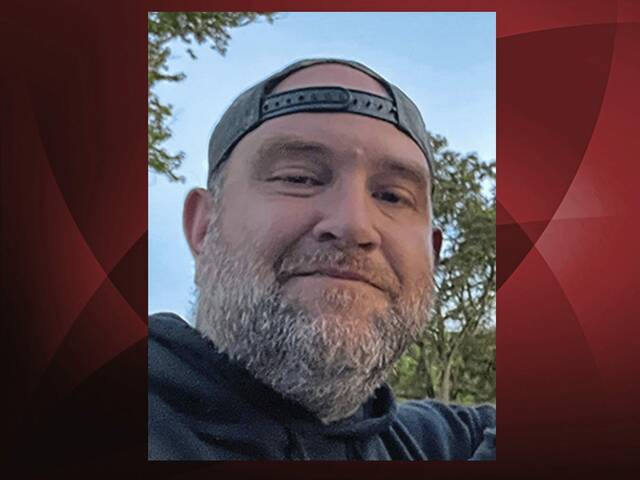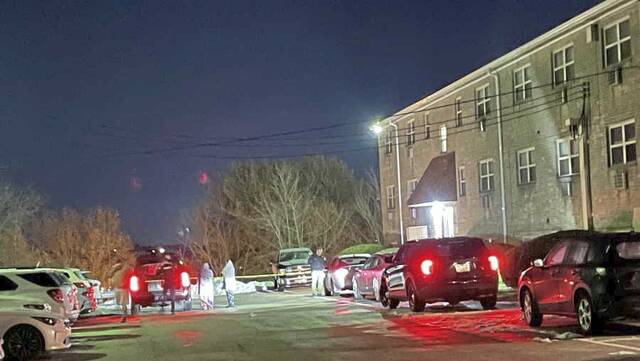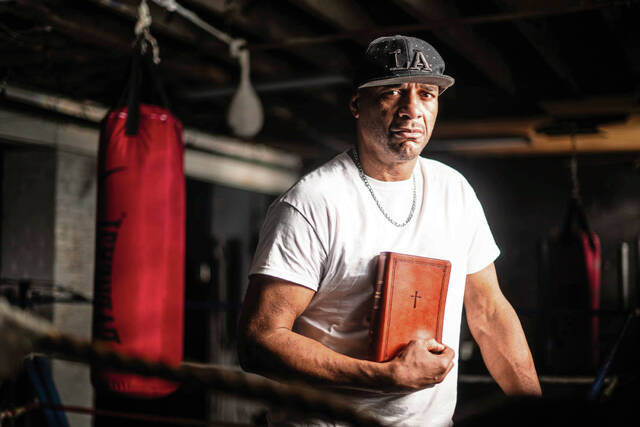Whenever legendary jazz musicians Slide Hampton and Harold Betters got together or spoke over the phone, the renowned trombonists frequently spoke of their Western Pennsylvania roots, said Betters’ daughter Cheryl Kelly.
“Oh, Dad and Mr. Hampton were super close for a very long time. They were great friends and actually last spoke on the phone shortly before my father’s death a year ago,” Kelly said Wednesday.
Locksley Wellington “Slide” Hampton died Nov. 18 at his home in Orange, N.J., his family announced this week. He was 89.
“Slide was certainly a legendary musician and will be missed,” Kelly said. Her father, a Connellsville native who was known as Mr. Trombone, died Oct. 11, 2020.
A Jeannette native, Hampton was a two-time Grammy Award winning composer. In 2005, he was the recipient of the nation’s highest honor in jazz, being named a Jazz Master by the National Endowment for the Arts.
Kelly recalled that in 1965, Hampton and her father collaborated on an album, “Harold Betters Meets Slide Hampton.”
After that, the pair remained close the rest of their lives, Kelly said.
“(Hampton) definitely was one of the greatest trombonists of all time,” said Richard Gazarik, a former Tribune-Review reporter who co-authored “A History of Pittsburgh Jazz: Swinging in the Steel City.”
“Slide came from a really huge family. He really didn’t live in Jeannette very long,” said Gazarik, noting that his family moved to Indianapolis when he was young.
The nickname Slide came from other family members, Gazarik said.
“He was actually right-handed, but he started playing the trombone left-handed,” he said.
Hampton started as a singer and dancer with a family band that included his parents and most of his 11 brothers and sisters. They were known as the Duke Hampton Family Orchestra, later as the Duke Hampton Boy and Girl Band.
He began playing the trombone at age 12, according to his obituary.
On its website, the National Endowment for the Arts paid tribute to Hampton and his extensive career.
“A charismatic figure, master arranger and formidable trombonist, Hampton holds a place of distinction in the jazz tradition,” the tribute states.
In a 2007 NEA interview, Hampton discussed the importance of life experience to a performer.
“Your life experience is very important — not so much for your creativity, but especially for your expression. The creativity is an important thing, but the expression is more important,” he said. ”It doesn’t matter whether you are composing many notes, it just matters that those notes have a lot of meaning and that you express yourself individually in a way that makes the music have some effect on the people that are listening to it, including yourself.”
On tours with his family band, Hampton encountered jazz musicians such as J.J. Johnson and Wes Montgomery, who became early influences.
By 1952, at the age of 20, Hampton was performing at Carnegie Hall with the Lionel Hampton Band (no relation). He then joined Maynard Ferguson’s band, playing trombone and providing new compositions to the band’s repertoire such as “The Fugue,” “Three Little Foxes” and “Slide’s Derangement,” according to the NEA.
As his reputation grew, he began working with bands led by Art Blakey, Dizzy Gillespie, Barry Harris, Thad Jones, Mel Lewis and Max Roach, again contributing both original compositions and arrangements. In 1962, he formed the Slide Hampton Octet, which included horn players Booker Little, Freddie Hubbard and George Coleman.
From 1964 to 1967, he served as music director for various orchestras and artists. Then, following a 1968 tour with Woody Herman, he stayed in Europe, performing with other expatriates such as Benny Bailey, Kenny Clarke, Kenny Drew, Art Farmer and Dexter Gordon.
Upon returning to the U.S. in 1977, Hampton began a series of master classes at Harvard University, the University of Massachusetts at Amherst, DePaul University in Chicago and Indiana University. During this period, he formed the World of Trombones: an ensemble of nine trombones and a rhythm section, the NEA said.
In 1989, he was co-musical director of Dizzy’s Diamond Jubilee, alongside Paquito D’Rivera. The year-long series of celebrations honored Dizzy Gillespie’s 75th birthday.
In 1998, Hampton received a Grammy Award for Best Jazz Arrangement with a Vocalist for Dee Dee Bridgewater’s recording “Cotton Tail.”
More recently, he served as musical adviser to the Carnegie Hall Jazz Band.











